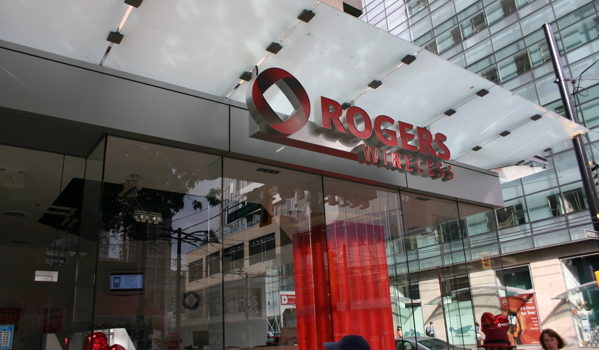Long available in other countries, “unlimited” wireless plans arrived among the big three carriers in Canada yesterday with Rogers launching new unlimited options that offer 10 GB of data at full speed and unlimited additional data at a far slower speeds of 256Kbps. While some criticize the throttled overage speeds or the inferiority of the Canadian plans when compared to what is available in the U.S., this is a good step for consumers that ration their data each month in fear of incurring significant overage charges. Indeed, the comparative data shows Canadian consumers use less data than consumers elsewhere, particularly subscribers with Rogers, Bell, and Telus. Moreover, with carriers generating more than $1 billion per year in overage fees, the change is not trivial with some analysts characterizing the move as a negative for Canada’s wireless industry.
As both Telus and Bell raced to offer comparable alternatives, the introduction of unlimited wireless plans provided a ringing endorsement of the government’s new proposed policy direction that should take effect shortly. Innovation, Science and Economic Development Minister Navdeep Bains is calling on the CRTC to encourage all forms of competition – a clear rejection of prioritizing “facilities-based competition” – which promises to result in the entry of new competitors, including mobile virtual network operators. Bains doubled down on that message last week despite predictable criticism from the industry, leaving little doubt that new competitors will take time, but they are coming.
In doing so, the prospect of greater competition through regulated mandates has once again sparked industry action with the introduction of unlimited plans. If this sounds familiar, it is because Canadians experienced this before. For example, when the OECD reported that Canada had some of the highest wireless roaming fees in the world in 2013, the CRTC responded to public pressure and began to investigate. The industry acknowledged that regulation was likely (a Rogers executive said “the roaming initiatives, which frankly we think are imperative in the long run to kind of get roaming in line, or I think we will see the same kinds of things that we’ve seen in other parts of the world where it becomes high on the regulatory agenda.”) which in turn led to reduced roaming fees and some innovation (the briefly useful Rogers Roam Like Home).
The same process has unfolded numerous other times: wireless number portability, device unlocking (which Telus once argued was copyright infringement), lengthy consumer contracts, and a consumer wireless code (which the industry only supported once provincial versions began appearing). In each instance, the industry opposed pro-consumer reforms until it became clear that the alternative was a regulated solution. Last week, Bains sent the message the government was not going to veer from its path of prioritizing all competition, not just “facilities-based” providers. With the introduction of unlimited plans, consider the message received.








Big whoop. Who wants a $75 (minimum) /month cell phone bill?
We need affordable phone plans across the board, not just for the data gluttons.
Lack of “unlimited” plans is hardly the problem here. Affordability across the spectrum of usages is the problem.
Seriously, who goes through 10GB/month? What are you doing? Watching Netflix all the time?
getting an “unlimited” plan for $75 becomes the MAX and other plans fall in line BELOW that level
and A LOT of people DO use that level of data OR WOULD IF they could afford to
Pingback: News of the Week; June 19, 2019 – Communications Law at Allard Hall